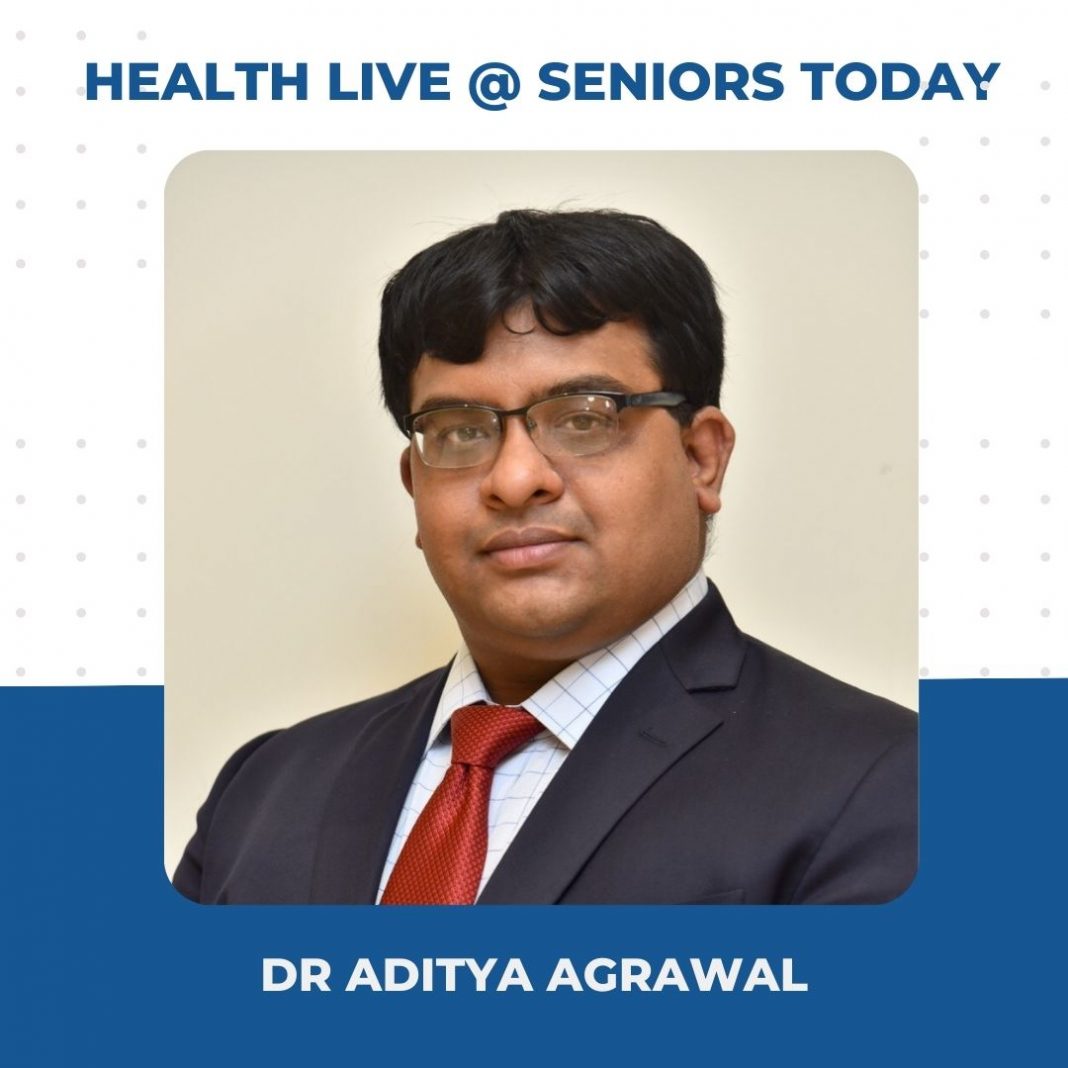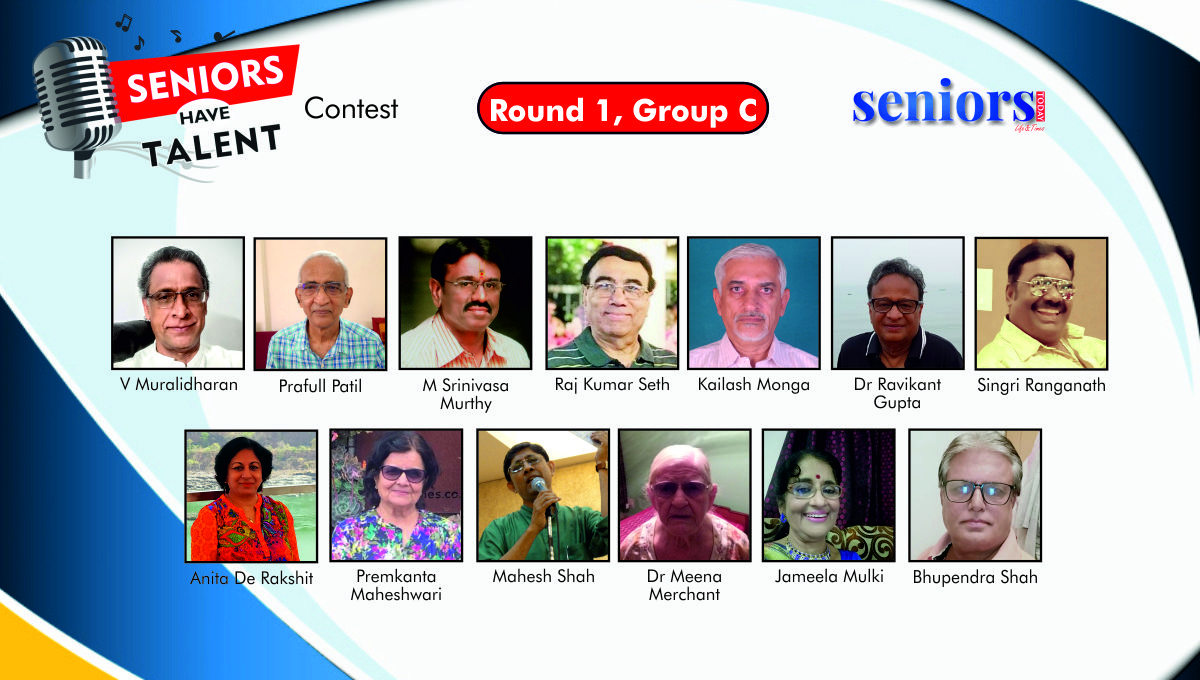On Saturday, October 10, Health Live @ Seniors Today hosted Dr Aditya Agrawal to address the advancement of covid-19
In the month of June 2020, Seniors Today had hosted Dr Aditya Agrawal to talk about coping with Covid-19. On Saturday, October 10, Health Live @ Seniors Today hosted Dr Aditya Agrawal again to address the advancement of Covid-19. Dr Agrawal is a consultant pulmonologist attached to several hospitals in Mumbai.
He is extensively trained in respiratory diseases both in India and New York. His special interests are in difficult-to-treat cough, asthma, bronchitis and lung fibrosis. He is a dedicated researcher and a peer influencer in management of respiratory diseases.
Watch the video here :
Here are the takeaways from Health Live @ Seniors Today with Dr Aditya Agrawal:
1. Only a test can confirm Covid-19 – Without undergoing a test, you cannot determine on your own whether you have Covid-19. You will have to get a test done to confirm if you are Covid-19-positive. There is no other way.
2. Any fever should be looked into – Given the times we are living in, one should be cautious of any sign of symptoms. Even if you have a mild fever, it needs to be investigated by a doctor to rule out Covid-19.
3. The two phases of the infection – A patient is non-infectious 10 days after the onset of the first symptom along with three days of no fever.
The first phase is the viraemic phase, where the virus begins to actively replicate in your body. This happens in the first seven days of the infection. The second phase is the inflammatory phase, where the patient begins to get breathless with lower oxygen levels.
4. Covid-19 recovery – People with no comorbidities usually take 17 days from the onset of the symptoms to be considered as recovered from Covid-19. Whereas people who are immunosuppressed may carry the infection for longer since their body will require more time to recover.
5. Antibodies – Covid-19 is a viral infection that induces your body to react to produce antibodies. The virus induces the body to produce antibodies. Usually, the antibodies come in on Day 15 from the onset of the symptoms. There are two types of antibodies: IGM – this comes out within the first week of the infection. And the second type of antibodies is IGG – these are thelong-lasting antibodies which has a neutralising effect and kills the virus.
6. Covid-19 is unpredictable – One cannot determine on the basis of health condition whether they should isolate at home or get admitted to the hospital. If the infection is worsening with time, one should ideally be admitted to the hospital – especially people with oxygen levels below 94 per cent.
7. Vaccine–Researchers and scientists from all over the world are trying to build a vaccine strong enough to fight Covid-19. While some clinical trials are on the advanced stage, it will take around six months to a year for the vaccine to arrive.
8. Subsided symptoms – If your sore throat and fever disappears within a day, do not ignore the subsided symptom. Fever even for a minute could be Covid-19. Hence one should get themselves investigated if they have a fever.
9. Post-Covid-19 scar – Some people may be unaware of having Covid-19 and may have recovered. It is only when they start experiencing post-Covid-19 symptoms – a little of dry cough, fatigue, difficulty in breathing, should they see a doctorto find out about their infection. Hence one should get oneself investigated as soon as there is a sense of any kind of fever.




